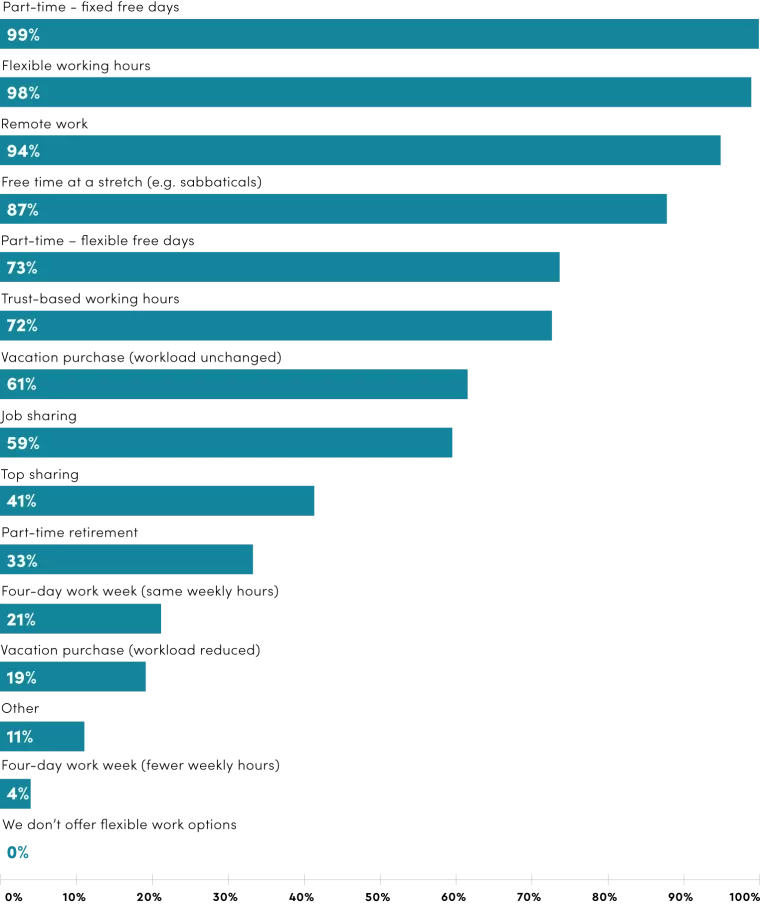In 2024, GIR companies firmly established flexible work as a standard offering. Most organizations provided a wide range of options, including remote work, flexible schedules, sabbaticals, and part-time roles with both fixed and adaptable free days. These practices signaled that flexibility is no longer an exception but an expected part of the employee experience.
However, not all forms of flexibility were equally accessible. More structured models such as jobsharing and topsharing remained far less common in leadership roles, suggesting that traditional views of management as a full-time, single-person responsibility persisted. The same holds for less widespread options like partial retirement and four-day workweeks, which continue to be rare in the Swiss context.
Still, the breadth of flexible work arrangements now available marks a significant shift in how organizations are supporting their people. As companies continue to build inclusive cultures, expanding access to flexibility at all levels presents a meaningful opportunity for progress.

In 2025, GIR companies continue to provide more parental leave than legally required, with mothers receiving an average of 17.5 weeks. However, support for fathers and adoptive parents has slightly declined, with average paternity leave dropping to 4.1 weeks and adoption leave decreasing to 8.5 weeks. These declines occur amid ongoing public discussions in Switzerland about social spending and family policy, which may influence how companies adjust their benefits. The ongoing gap between maternity and paternity leave reflects traditional assumptions about caregiving roles, which is also reflected in the Swiss legal structure. As family dynamics continue to change, there’s an increasing opportunity for companies to modernize leave policies and better support all types of caregivers.

Childcare remained a challenge for working parents in Switzerland, and most GIR companies offered limited support. In 2024, financial assistance was still the most common measure, provided by 60% of companies, followed by childcare partnerships at 38% and help in finding a childcare spot at 29%. Support decreased in several areas compared to data from 2023, including temporary backup care, which declined to 15%. Although some companies continue to invest in childcare solutions, overall efforts could be improved.
